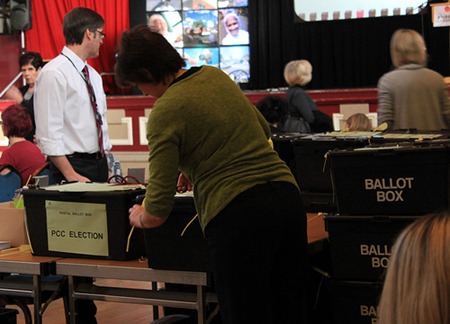Prisoner voting seems to be a bit of a taboo topic and when you pose the question to most people, the initial response is usually a firm “no”. But on application of the various democratic principles that the UK upholds, and some convincing arguments, it begins to get a little difficult to defend that response.
The discussion comes at a time when Parliament have voted against lifting the blanket ban on voting rights for prisoners, despite this being illegal as defined by the European Court of Human Rights (expect a longer dragged out court case, and some prisoners attempting to sue) and the UK is, again, one of few Western States to have a blanket ban. Legally, the UK only needs to allow a minority of prisoners to vote, perhaps those serving sentences for minor theft, to comply with the European legislation, but last month the House of Commons voted overwhelmingly against increasing any voting rights for prisoners, leaving them disenfranchised as a result.
Proclaimed one of the most democratic countries in the world, it seems a little preposterous that the UK does deny these rights to our own citizens, especially when countries which are often criticized for their human rights, such as China, only restrict this right on the most serious crimes (where the prisoners are sentenced for death or a life sentence). In Germany, the law even encourages prisons to promote voting to inmates.
I can describe the UK’s ban only as wrong. To deny any person the right to have their say in their leadership and the policies they have to live under when they leave prison is simply unfair. Perhaps I could understand the ban on prisoners who had been convicted for serious crimes, such as terrorism or serial murder, but even then I’d feel a bit concerned about taking away their democratic rights. After all, they may have been convicted of a crime that they may not have initially agreed should be designated a crime, for example, those convicted of drug offences. A broad section of society disagrees that the use of drugs for recreational use should be an offence at all. Using your vote is your way of having a say in what should be deemed right and wrong by society.
Furthermore, these prisoners may continue to pay tax whilst serving if they are part of the prison workshop scheme. Surely, those who contribute to the economy, should also have a say in how their money is distributed within society. Denying the prisoner the right to vote would take away this possibility.
The UK often criticise other countries for their record on human rights, especially with their denial of universal suffrage, but are we able to talk about these issues if we do it ourselves? The idea of a democracy is to allow the rule of the masses, allowing society to direct the way forward for themselves, but denying a section of society that privilege is denying the full prospects of democracy. If we are one of the most democratic nations in the world, then this is a sad story for those which aren’t deemed very democratic.
![prisoner votes_thumb[2] prisoner votes_thumb[2]](http://lh5.ggpht.com/-GBX2p0dzwgU/ULoFSCfGg6I/AAAAAAAAAUU/zg3C1t5uYmk/prisoner%252520votes_thumb%25255B2%25255D%25255B3%25255D.jpg?imgmax=800)

